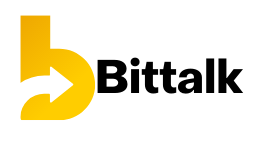Date
70% of Salvadorans want the bitcoin to be repealed
According to a recent poll conducted by IudopUCA, 70% of Salvadorans want the Bitcoin law supported by President Nayib Bukele to be repealed.
45% of people believe that poverty and unemployment are the two biggest problems currently facing the country.
The past week has been turbulent for El Salvador, with union members and members of various organizations taking to the streets to protest the Bitcoin bill.
Opponents claim that Bukele should prioritize industries such as health and education, rather than cryptocurrency.
Deposit & Withdrawal method of Tether by Dukascopy Bank
Swiss foreign exchange bank Dukascopy Bank added the ERC20 version of Tether (USDT) as an account deposit and withdrawal method, and increased the maximum net cumulative amount that can be deposited in a cryptocurrency trading account (that is, the total deposit minus the total withdrawal) to 100,000 The U.S. dollar is applicable to three cryptocurrencies: USDT, ETH and BTC.
One in six Australians hold cryptocurrencies
According to a Finder survey, one in six Australians now own cryptocurrencies, with a total value of up to 8 billion U.S. dollars.
The most popular cryptocurrency in the country is still Bitcoin, which is currently held by 9% of Australians.
Approximately 8% of Australians say they own Ethereum, 5% own Dogecoin, and 4% of Australians own Bitcoin Cash.
Researchers said they were surprised to find that 35% of respondents believe that Bitcoin will eventually be more widely traded than traditional currencies-which means that one-third of Australians believe that Bitcoin will replace legal tender in 2050.
Nigeria SEC established a financial technology department to study crypto investment
[Planet Daily News ] Nigeria’s Securities and Exchange Commission (SEC) Director-General Lamido Yuguda said on Thursday that the country’s securities regulator has established a financial technology department to study crypto investments and products to develop regulatory measures.
Lamido Yuguda said, “We are paying close attention to this market to see how we can introduce regulations to help investors protect their investment in the blockchain.”
He did not provide a time frame for the issuance of regulations, but said that once the Nigerian banking system allows the use of cryptocurrencies, the Nigerian SEC will intervene in supervision. The Nigerian SEC will try to regulate cryptocurrencies on the grounds that they are eligible for securities trading.
